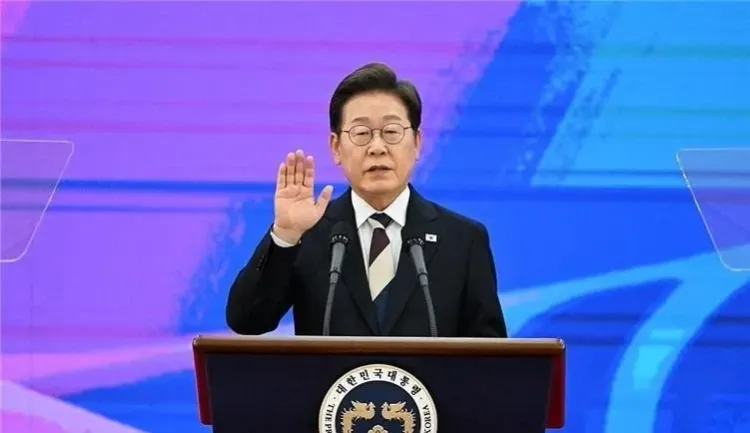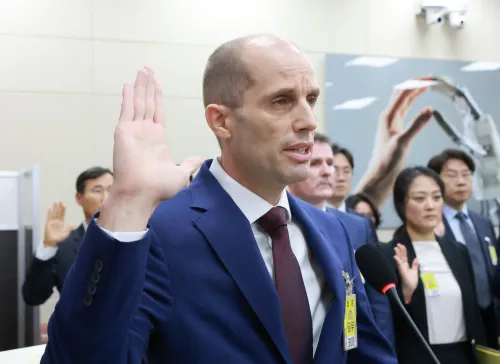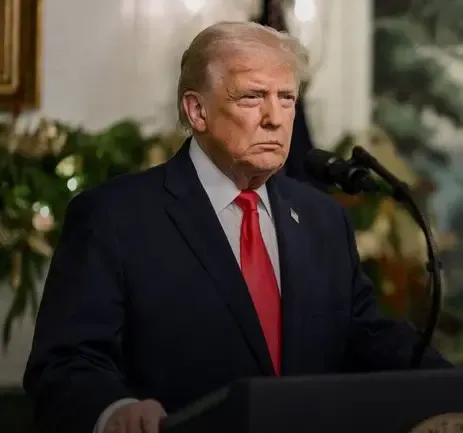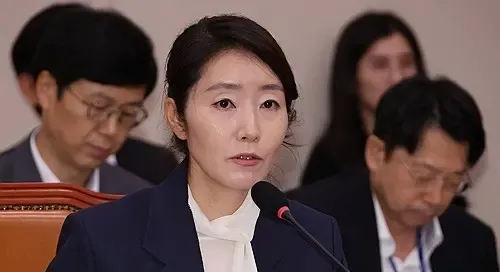Why Did South Korean President Lee Reject Cabinet Resignations?

Synopsis
Key Takeaways
- President Lee Jae-myung rejected most Cabinet resignations to maintain stability.
- Only Justice Minister Park Sung-jae's resignation was accepted.
- The decision reflects the need for continuity in governance.
- Forming a new Cabinet could take weeks due to parliamentary processes.
- New appointments include Rep. Kim Min-seok as Prime Minister.
Seoul, June 4 (NationPress) President Lee Jae-myung of South Korea has opted to reject the resignation proposals from Cabinet members, with the exception of Justice Minister Park Sung-jae, in a bid to maintain stability in government operations, according to a statement from the presidential office.
Deputy Prime Minister and Education Minister Lee Ju-ho, who briefly acted as President, communicated the collective decision of the Cabinet to resign during a phone call with the newly elected President on his inaugural day. Nonetheless, President Lee accepted only Park's resignation.
“President Lee has made it clear that he will decline the Cabinet members' resignation offers except for Minister Park, emphasizing the importance of continuity in governance,” stated presidential spokesperson Kang Yu-jung during a press briefing.
Lee assumed his role immediately after winning the election, without a transition phase, following a snap election held to select a successor to former President Yoon Suk Yeol, who was removed due to a failed martial law attempt last December, as reported by Yonhap news agency.
This approach signifies the necessity of sustaining a working government, as a significant portion of the 21 Cabinet members is needed to establish a quorum for Cabinet meetings. Creating a new Cabinet could potentially take weeks, considering the process involves parliamentary confirmation hearings.
All Cabinet members appointed by Yoon submitted their resignations to the Ministry of Personnel Management on the Monday preceding the election.
Park, a close aide to Yoon, faced impeachment over allegations connected to the former President's martial law decree, which was annulled by the Constitutional Court in April.
In a significant move, President Lee nominated Rep. Kim Min-seok of the Democratic Party (DP)—a key campaign aide—as his candidate for Prime Minister, marking his initial personnel announcement since taking office.
Kim, a seasoned lawmaker with a history of student activism, played a crucial role in Lee's campaign.
“Kim possesses a wealth of legislative experience, profound policy knowledge regarding public welfare, an international outlook, and unifying leadership—qualities essential for steering the nation through challenges and rejuvenating the economy,” Lee stated during a press conference at the presidential office.
The nomination for Prime Minister will undergo parliamentary approval following a confirmation hearing.
Additionally, Lee appointed DP lawmaker Kang Hoon-sik, another significant campaign figure, as his chief of staff.
Veteran diplomat Wi Sung-lac has been designated as national security adviser, while former Unification Minister Lee Jong-seok is set to lead the National Intelligence Service.










